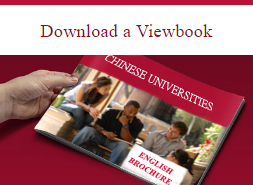
Southeast University (SEU) is one of the national key universities administered directly under the Central Government and the Ministry of Education of China. It is also one of the universities of Project 211 and Program 985 that is financed by the Central Government to build as a world-class university. Located in the ancient capital city of Nanjing, Southeast University has campuses such as Sipailou ,Jiulonghu and Dingjiaqiao, covering a total area of 392 hectares.
Southeast University is one of the oldest institutions of higher learning in China. Its origin can be traced back to 1902, when it was founded as Sanjiang Normal College. Then, it evolved as: Nanjing Higher Normal School, National Southeast University and National Central University. During the nationwide restructuring of institutions of higher learning in 1952, Nanjing Institute of Technology was established on the original site of National Central University. In May 1988, the university was renamed Southeast University. And in April 2000, Nanjing Railway Medical College, Nanjing College of Communications and Nanjing Geological School were merged into the university, whose main campus is located at the center of the ancient capital city of Nanjing, a sacred place for education since the Ming Dynasty.
Southeast University encourages the school spirit of rigor, truthfulness, unity and diligence, i.e., adopting the rigorous, truthful, realistic scientific attitude and working spirit of full cooperation. In its over 100 years’ history, Southeast University has cultivated a great number of prominent and learned figures, and thus has greatly contributed to the nation`s revitalization and development. its graduates not only have excellent theoretical competence and practical skills, but also possess a wide range of knowledge and abilities.
Southeast University has become a comprehensive and research-oriented university featuring the coordinated development of such multi-disciplines as science, engineering, medicine, literature, law, philosophy, education, economics, management, art, etc., with engineering as its focus. The university boasts a high-level faculty of over 2,700 full-time teachers, including 1800 full or associate professors, 835 doctoral supervisors, 1,889 supervisors for masters, 13 academicians of the Chinese Academy of Sciences and Academy of Engineering, 2 members of the Academic Degrees Committee of the State Council, 13 members of the discipline review group of the State Council, 42 distinguished experts of the national “Thousand Talents Program”, 43 “Cheung Kong Scholar” Professors, 5 winners of the national awards for top teachers, 41 granted with funds from the National Outstanding Youth Science Foundation, 3 preeminent experts involved in the national high-tech development project known as “Program 863”, 1 expert in the International Science & Technology Program, 2 experts for national major special projects, and 22 selected into the Talents Project initiated by the Ministry of Personnel of China for the development of high-level professionals and technical talents. At present, it has an enrollment of over 30,000 full-time students, including 14,440 postgraduate students; it also has over 3,300 on-the-job master’s degree candidates.
The university now comprises 29 schools or departments with 75 undergraduate disciplines in all. It boasts 30 and 49 disciplines respectively authorized to confer Ph.D. degrees and master’s degrees, 5 national key disciplines (comprising 15 sub-disciplines), 5 national key sub-disciplines, 1 national key (development) discipline, 13 disciplines in the development project for strong disciplines of universities based in Jiangsu Province, 14 provincial key disciplines and 30 post-doctoral research stations. It also boasts an array of key scientific research bases, including 3 national key laboratories, 3 national engineering research centers, 2 national research centers for engineering technology, 1 national professional laboratory, as well as 11 key laboratories and 5 engineering research centers granted by the Ministry of Education, etc..
Southeast University, always sticking to the theory of “education-first” on school management, has been increasing input in teaching and intensifying the reform in education in its effort for the quality-oriented education and students’ development in terms of their spirit of innovation and ability of practice. In terms of undergraduate education, the university, while traditionally emphasizing basic knowledge, practice and quality, has put forward higher standards, i.e., pursuing excellence, going international and highlighting innovative research.
















